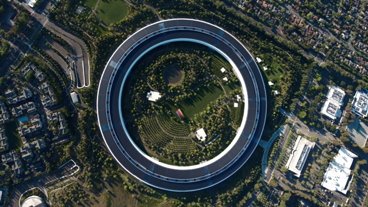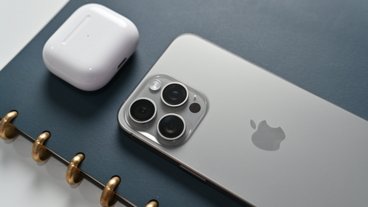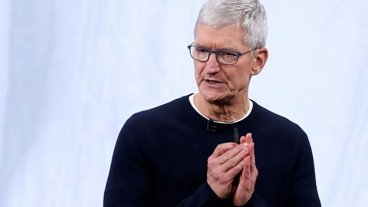Notes of interest from Apple's Q2 2012 conference call
Profits grew 94 percent to start 2012, compared to the same three-month span in 2011, to 11.6 billion, or $12.30 per diluted share, on quarterly revenue of $39.19 billion. In addition to the iPhone, it was also a record quarter for the iPad and Mac.
Following Tuesday's earnings release, Apple executives held a conference call with analysts and members of the media to discuss the results. Participating in the call were Apple Chief Executive Tim Cook and Chief Financial Officer Peter Oppenheimer.
Highlights
- Q2 2012 was second only to the all-time revenue record Apple reported in the holiday quarter of 2011.
- Greater China saw iPhone sales 5 times the level of the year-ago quarter.
- Apple sold more than two iPads to every one Mac to education institutions in the March quarter. Education sales were helped especially by the $399 iPad 2.
- Supply constraints continue with the new iPad, but Cook believes Apple will be able to supply "a significant number of iPads" in the June quarter.
- More than 365 million iOS devices have been sold to date.
- 67 million iPads have been sold through the last quarter. It took Apple 24 years to reach that level with the Mac.
- iOS App Store now has more than 600,000 applications, with more than 200,000 specifically for iPad.
Apple's iPhone business
Oppenheimer highlighted the success the iPhone has seen in the enterprise. Said iOS in-house development has improved productivity.
Most Fortune 500 companies that use the iPhone are also app developers.
Cook said Apple is very happy with pricing of the iPhone 3GS for free and iPhone 4 for $99. "Both of them contributed to our ability to achieve 35 million in sales, which is our second-highest quarter of all time."
On carrier subsidies, Cook said Apple is focused on making "the very best smartphone in the world." He thinks that most carriers want to provide what their customers want to buy.
"The most important thing by far is for Apple to continue making products that customers want," Cook said. "We are deeply committed to doing this."
He said that it's important to remember the carrier subsidy is not large relative to the sum of payments over a 24-month contract period. Any differences between the iPhone and other phones is an "even smaller" difference.
He said carriers have told him that the churn from iPhone customers is the lowest of any phone that they sell. "That has a significant direct financial benefit to the carrier," Cook said.
Apple's design team also work very hard to be efficient with data. Cook believes that the iPhone is better with data efficiency than other competing smartphones.
Cook also thinks the iPhone is the best smartphone at enticing users to switch from a traditional mobile phone to a smartphone. "There's a win, win, win there," he said, noting that carriers, the customer and Apple are all happy with the results.
On patent litigation, Cook said he hates it, but "we just want people to invent their own stuff." He said he would rather settle than battle, but it's also important that "Apple not become the inventor for the whole world."
Oppenheimer believes they will see a sequential decline in iPhone sales in the coming quarter, though there will be year over year growth.
Apple's iPad business
iPad sales grew 151 percent from the year-ago quarter
New iPad is now available in over 40 countries, and Apple saw "very strong sales," Oppenheimer said.
Recognized revenues from iPad and iPad accessories was $6.6 billion, an increase of 132 percent.
Hopeful that iPad will be a popular choice heading into K-12 buying season.
U.S. Air Force Air Mobility command deploying "thousands of iPads" to serve as electronic flight bags.
Apple saw a sequential decline in price of iPad of 7 percent in March, suggesting the new $399 entry-level model got off to a strong start.
"We're just learning about the elasticity of demand at the $399 price point," Oppenheimer said. "It's doing well." But, he added, that the new iPad is "on fire," and Apple is selling them as fast as they can make them.
On the $399 iPad 2, Cook said he's "thrilled with the results," but cautioned it's "only been a few weeks."
"This unlocked some education demand that is probably a more price-sensitive customer," Cook said. Other countries also saw a "marked change in demand" at the lower price point.
"The new iPad was supply constrained last quarter for the first three weeks or so that it was shipping, and it is still constrained," Cook said.
"The absolute sales of iPad 2, at least in the early going, is very exciting," Cook said.
On merging the iPad and Mac: "Anything can be forced to converge," Cook said, but "products are about trade-offs." "You can converge a toaster and a refrigerator, but those things are probably not going to be pleasing to the user."
The iPad is "sort of everywhere you look now," and applications are "so easy to make very meaningful for someone," Cook said. He expects that as the ecosystem gets better and the products improve, "the limit here is nowhere in sight."
94 percent of the Fortune 500 are testing or deploying iPads, and 74 percent of the global 500 are doing so as well. Now they are focusing on penetrations within these accounts.
Apple's Mac business
Macs grew 7 percent in the March quarter, outpacing the total PC market of 2 percent.
Cook said the March quarter was a "tough compare" to 2011, when Apple introduced new portable models. He also added that there were 14 weeks in the December quarter, which skewed those results.
"I think there was some cannibalization from iPad, and the market is slow," he said, but the market is a "much, much larger factor."
"There is a very good market for the MacBook Air, and we continue to innovate in that product," Cook said. But he said it "appeals to someone who has a little bit different requirements" than those who use the iPad.
On converging the Mac and the iPad, Cook said: "We're not going to that party. But others might."
Apple's App Stores, iTunes and iCloud
Oppenheimer said there are over 125 million users of iCloud to date. "They're building up documents and music and other things that they want to store. I think storage growth will come over time."
"Our real desire here was not about selling more storage… We just really wanted to increase the customer delight," Oppenheimer said.
On iTunes content, Oppenheimer said Apple is "thrilled" with the rate they're adding content into iTunes. "This is something that we have to do country by country, so it takes a bit of time."
Apple has the largest catalogue of songs and movies available anywhere, with 28 million songs and revenue of almost $1.9 billion in the March quarter.
Apple's iPod business
iPod touch still accounts for more than half of all iPods sold.
Oppenheimer said that iPod sales during the quarter exceeded Apple's expectations.
Apple's retail business
Revenue in retail was $4.4 billion, second only to record revenue in the December quarter.
826,000 Macs sold in the quarter, compared to 790,000 a year ago. About half were to customers who never owned a Mac before.
Average revenue per store was $12.2 million, an increase of 22 percent from a year ago.
85 million visitors at Apple stores in the quarter, compared with 71 million a year ago. An average of 18,000 visitors per store, per week.
On the store-within-a-store concept at Walmart, Cook said Apple is "trying some things." He doesn't expect Apple will be in 10,000 Walmarts.
Apple's regional business segments
Revenue in China for the quarter $7.39 billion. First half of fiscal 2012 revenue is $12.4 billion. Cook said it's "mind boggling that we could do this well."
China has very strong demand for the new iPhone 4S and the iPad 2. The new iPad has not yet shipped in mainland China, but it is shipping in Hong Kong.
"The halo that both of these products have produced for the Mac is also incredible." The Mac was up over 60 percent year over year in China during the quarter.
"China has an enormous number of people moving into higher income groups — middle class, if you will," Cook said. "And this is creating a demand for goods — not just Apple's, but other companies' goods as well." He said Apple is doing "everything they can" to understand the market and make the most out of the China market.
In Spain, Vodafone has changed policy on subsidies. Cook said that Spain has been "weak" for Apple. Revenues grew there last quarter, but "materially less" than in Europe or worldwide. But he said that had nothing to do with subsidies, and is related to a "terrible economic situation" in Spain.
Cook explained that the carriers still have subsidies for existing customers. "They pulled subsidies on new customers. And so it wasn't a pull of all subsidies." He wouldn't use the situation as a "proxy for the world."
 AppleInsider Staff
AppleInsider Staff










 Mike Wuerthele
Mike Wuerthele

 Malcolm Owen
Malcolm Owen
 Chip Loder
Chip Loder

 William Gallagher
William Gallagher
 Christine McKee
Christine McKee
 Michael Stroup
Michael Stroup







